NEWSLETTER
BE FIRST IN LINE FOR OUR NEXT RELEASE.
© 2026 TIPSTER. ALL RIGHTS RESERVED.
NEWSLETTER
BE FIRST IN LINE FOR OUR NEXT RELEASE.
Words by Marcelo Jaimes Lukes
Photography by Sacha Maric
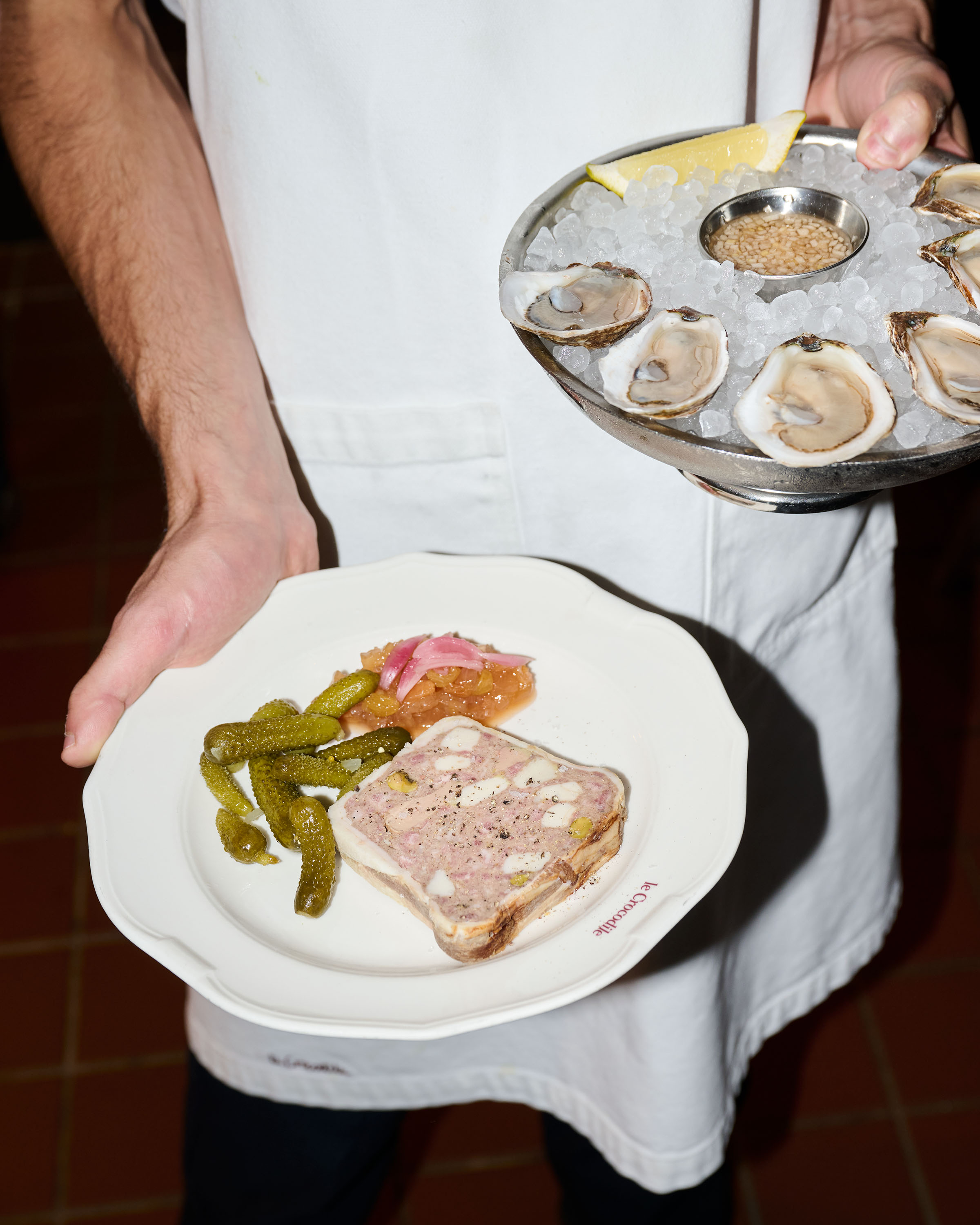
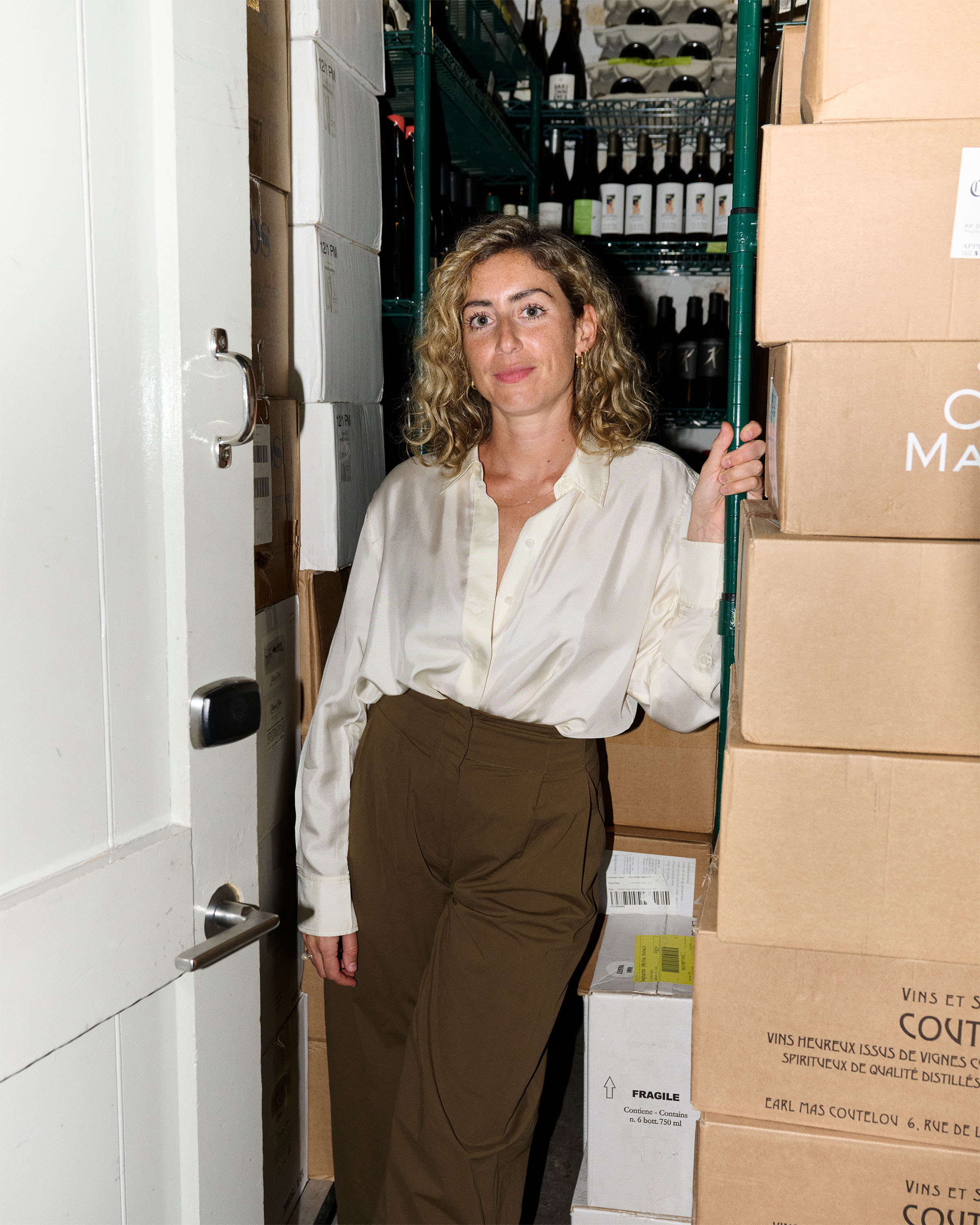
When I told my mother I was headed to a restaurant on Wythe and North 11th, she laughed. “I used to live around there in the ‘90s,” she said. “Back then, it always smelled like diesel fuel and meatpacking plants.”
Oh, Mom, things are different now.
Today, the corner of Wythe and North 11th smells like crispy chicken skin and blistered tomatoes. Sitting at Le Crocodile’s marble bar, it’s hard to imagine that this restaurant used to be anything else. Hotel guests drift into the glowing room to order a prix fixe lunch, then linger over an espresso. Some return—just as I did—to the very same tables for dinner, fueling the jovial chorus of clinking glasses.
The directors of this performance keep to the wings. Chef-partner Aidan O’Neal and wine and service director Gabriella Borg Costanzi may not take the spotlight, but their influence is on every plate and in every glass. They’re not from around here, they tell me. Maybe we should learn a thing or two from that.
O’Neal arrived in New York by way of Vancouver, where the nightly dinners of his upbringing brushed against the city’s multicultural edge: Japanese, Chinese, and South Asian. Costanzi’s path looks different. Her Maltese family gatherings—long tables crowded with platters, relatives talking over one another, children darting between legs—taught her that meals are as much about atmosphere as what’s on the plate.
I sat down with O’Neal and Borg Costanzi in Le Crocodile’s lively dining room to talk about what keeps Williamsburg’s beloved restaurant buzzing: hospitality as theatre, the noble struggle of restaurant work, and why comfort can sometimes be the enemy.
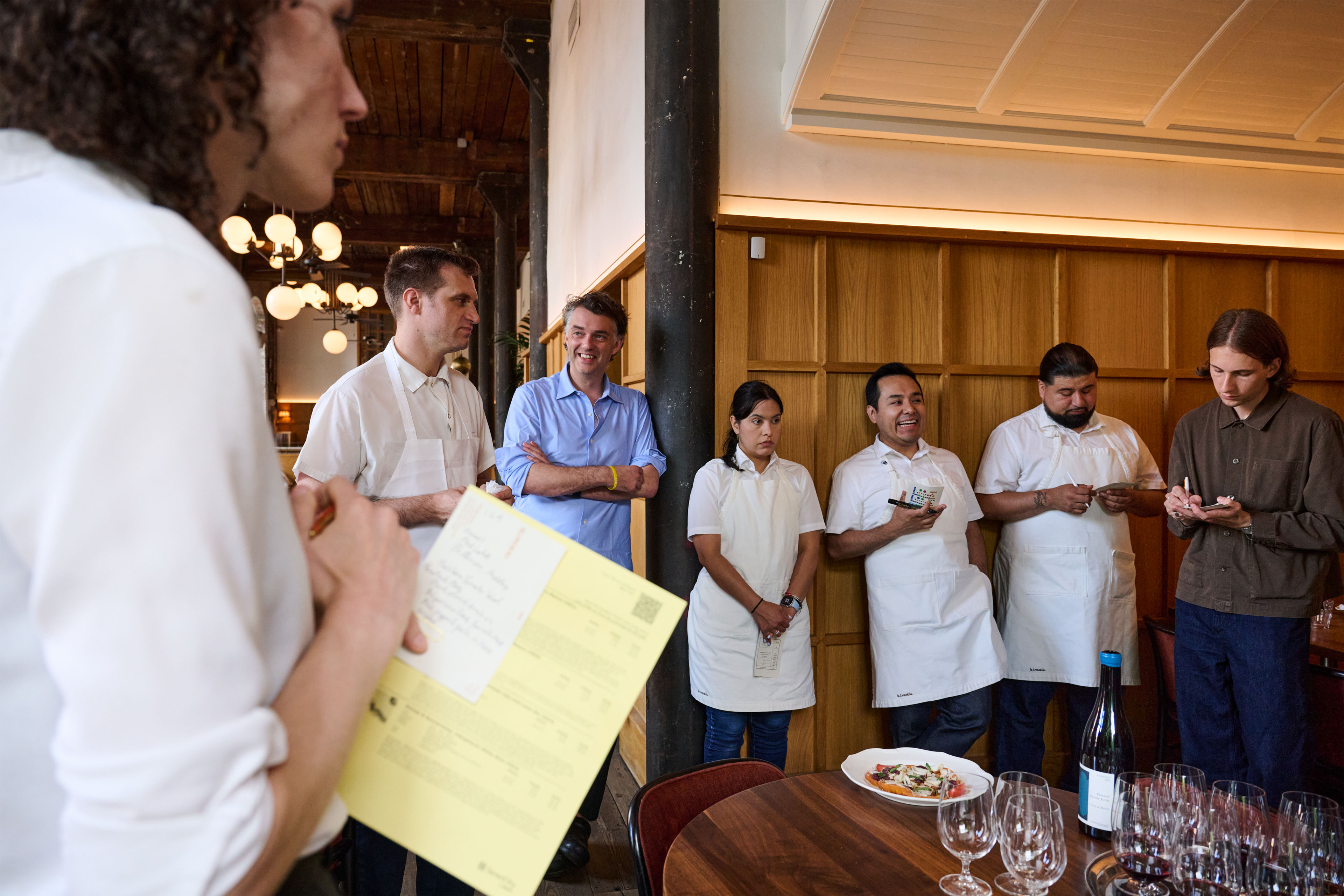
MJL: What originally motivated you two to work in restaurants?
AO: (Laughs) I was bad at school. I barely scraped through high school. I was terrible at math, into smoking weed and hanging out, not really doing anything. I didn’t have a plan. Kitchens gave me that. Restaurants found me.
The turning point was Au Pied de Cochon in Montreal. That place was insane. Fourteen, fifteen-hour days, people cooking their asses off because they believed in it. And the tomato season—man. Every week we’d get five thousand pounds of tomatoes. They’d be stacked everywhere in the restaurant, ripening. On Sunday nights, we’d process them all, jar them for winter. We’d be there until five in the morning, smoking, drinking, jarring tomatoes, laughing, dead tired. It was romantic. It kind of even felt noble, if you can say that. That was when I thought: okay, this is worth it. This is what I want to do.
GBC: For me, it was a little different. When I was fifteen, we had to do work experience for school. For me, there was no question—I was going to the local restaurant. I did two weeks, loved it, and they kept me on as a Sunday girl. I’d walk away with £50 in cash tips. At fifteen, that was a fortune.
MJL: You were fifteen then—what made you stay in the industry?
GBC: I’ve always felt at home in restaurants. I studied performing arts and moved to London. I had an agent, auditions, the whole thing. But I kept finding excuses not to go. In restaurants, I felt good. I’d walk in, the Italians would hug and kiss me hello, I’d get paid to talk to people, to take care of them. It felt better than auditions.
It was theatre, in its own way. On the floor, I became my most confident, because it wasn’t about me. I was the vessel. I brought the experience of the restaurant to the guests.
And I’ll never forget this trip when I was fourteen, in Lanzarote. I saw this server who was just…the best. He wasn’t doing anything flashy. He just knew what everyone wanted before they even asked. You’d reach for something, and it was already there. He floated around the restaurant. I didn’t even understand what I was seeing at the time—I hadn’t worked in restaurants yet. But it stuck with me. Years later, I realized: he was doing it with total grace. That was the epitome of hospitality.
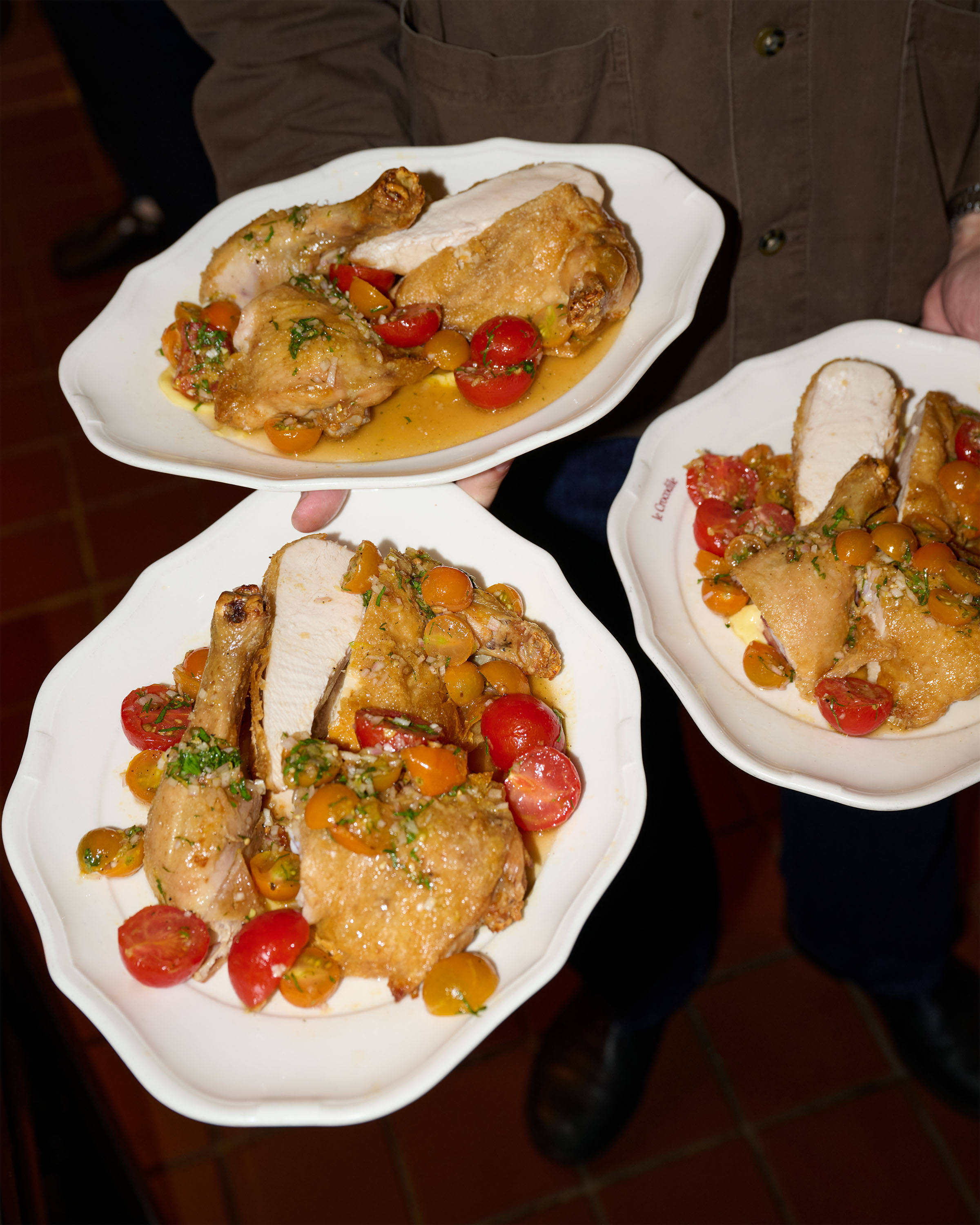
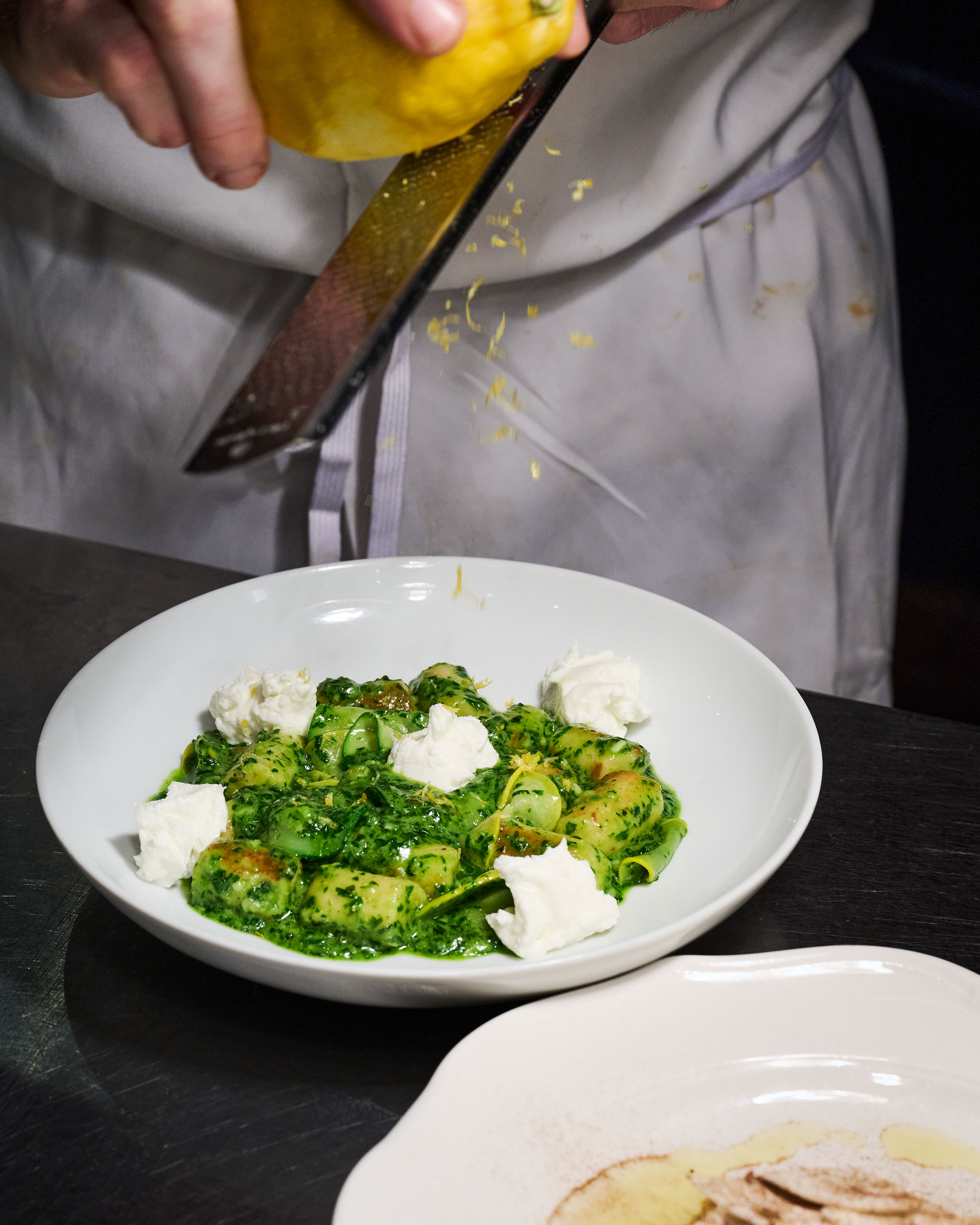
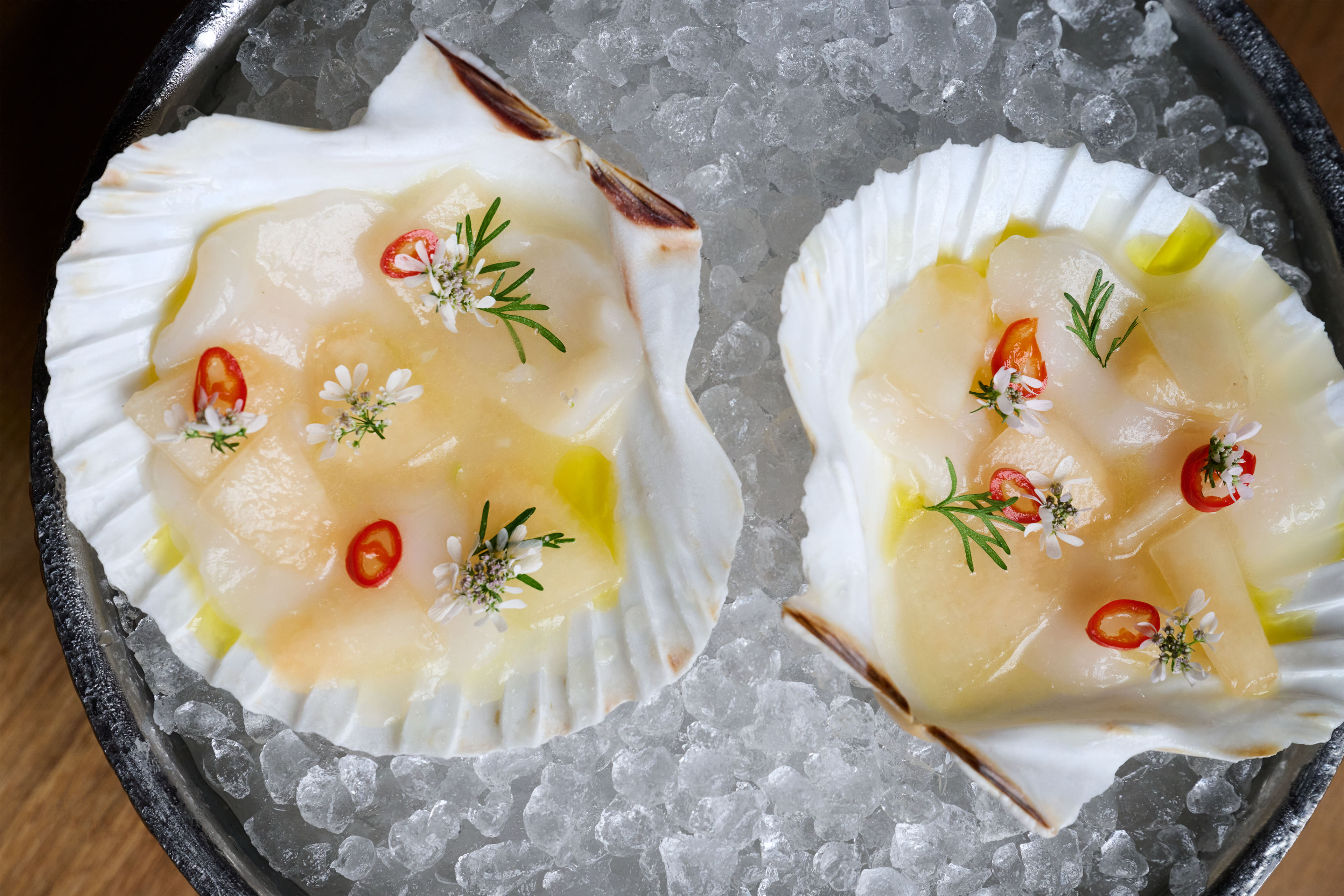
MJL: Do you both still feel that sense of magic when you go out to restaurants now? Or do you analyze them differently, given your experience?
AO: It’s totally different. In my twenties and early thirties, I couldn’t just enjoy a meal. I was always comparing: is this better than what I’m doing? How do I stack up? Kitchens are competitive places, and that mindset came with me everywhere. Now I just enjoy restaurants. I don’t critique. I like seeing what people are doing and being empathetic. I know the constraints. That’s liberating.
MJL: That sense of noble struggle, of pushing yourself—you both had that in your twenties.
GBC: Yeah. When I was in my twenties, I recall making £25,000 a year as a general manager and thinking it was a huge amount. Suddenly, I wasn’t struggling, and it freaked me out. I thought, “Wait, is this it? Am I leveling out at 24?”
I’d grown up in a dance school where being in pain meant you were progressing. If you weren’t hurting, you weren’t working hard enough. Comfort felt dangerous, like my dreams would die if I got too comfortable. I left that job and went back to serving three days a week, because I wanted to feel like I was clawing toward something again.
AO: Same in Montreal. I was starting to make good money, and that scared me. So I left for New York. My first year here was awful. I had no money. But it felt right. At 25, you should be struggling. That’s the point.
MJL: How does that idea—pushing yourself, being uncomfortable—show up at Le Crocodile?
GBC: (Laughs) We want our staff to be comfortable, but we also want folks to take ownership. In Europe, sometimes you’ll see one person tending bar, running food, helping with luggage, and doing it all with pride. If I’m to be honest, in the U.S., things can be a bit too siloed. You have six people doing what two people could.
At Le Crocodile, we try to push against that. We want staff to feel like they can be involved in everything. We empower people to feel a part of the restaurant.
AO: Exactly. In New York, restaurants are built on spreadsheets: how many managers, how many hosts, how to divide the roles. In Europe, the question is: what’s going to make this better for the guest? We’d rather have one person who loves the place and does everything than three who don’t care.
GBC: And that only works if you set standards. How the table is set, how a plate is placed—those are non-negotiable. Once that’s in place, staff can bring their whole selves. Then it feels warm and human.
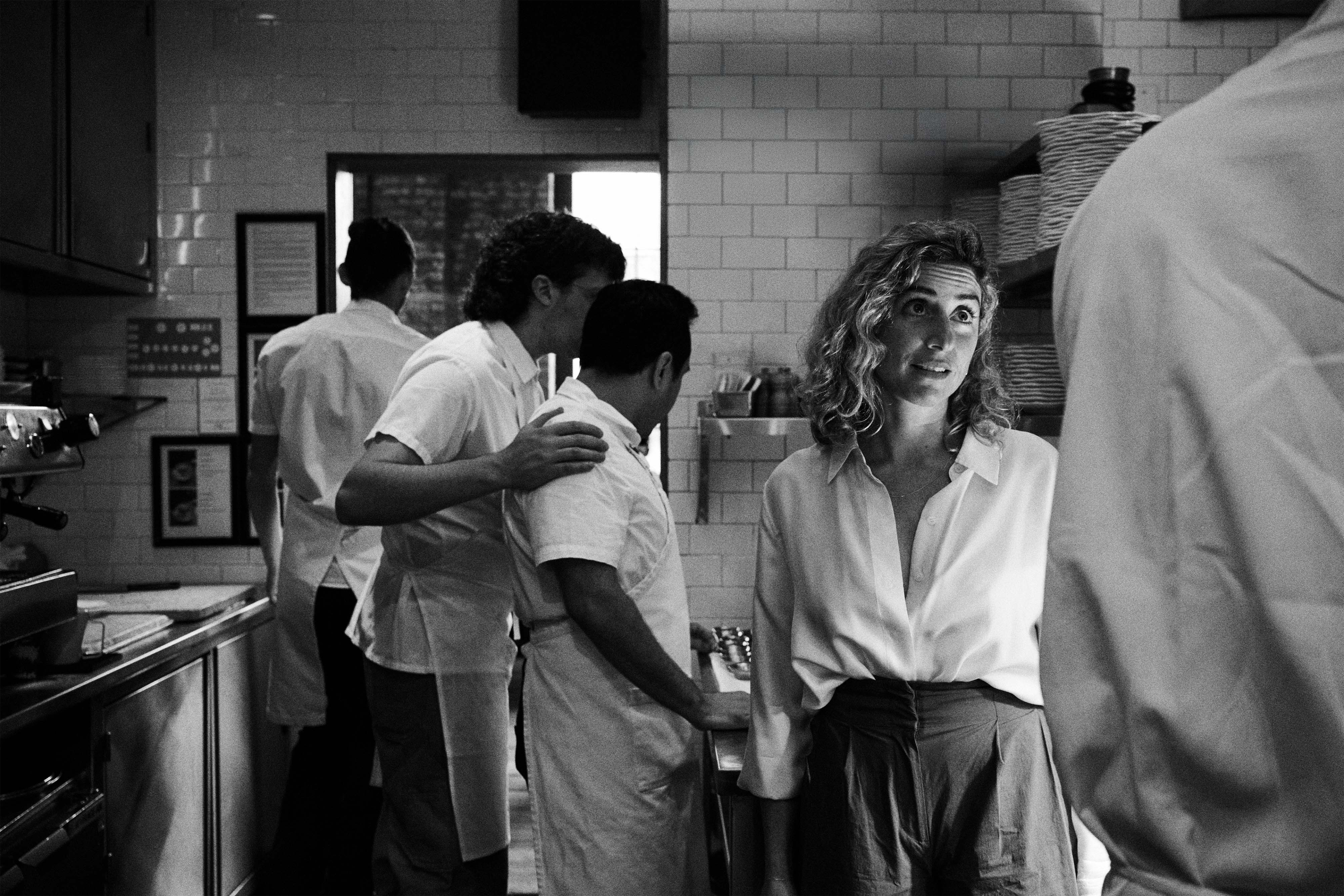
MJL: Where in the city are you looking for inspiration right now?
AO: Oh, the team at Le Veau d’Or in New York is inspiring. Playful, but with real standards. I love it there.
GBC: For wine, I’m always looking at lists. Chambers Street, of course. Bascule is wonderful, with a really good wine list. Jordan is great—it’s a pleasure to spend time there. And a new spot, A Horse With No Name on East 5th Street—it’s beautiful, with lots of by-the-glass pours, no pretension. I had a glass there the other day and immediately ordered five cases of the same wine.
MJL: Gabriella, what’s your philosophy for the wine program here?
GBC: It’s about well-made wines, low intervention, and thoughtful farming. I don’t care about dogma. I don’t want “natural” to mean “flawed.” The best wines in the world are farmed carefully, made minimally, and taste clean.
Pricing is just as important. I don’t do a strict “four times cost” model. I think about the weighted average of the list. Sometimes I’ll absorb costs so guests don’t feel like they’re being punished for ordering something special. The goal is accessibility. You should feel comfortable ordering a second bottle here.
Guests also shouldn’t feel intimidated. If someone says, “I hate Chardonnay but I love Chablis,” I’m not going to sneer. I’ll guide them. It’s about making wine approachable, fun, and celebratory.
MJL: So in the end, how do you define Le Crocodile?
AO: Honestly? It’s just a restaurant. Apps, mains, dessert, a good wine list. People try to over-categorize, to brand. To me, a restaurant should be a safe space where you’re looked after. That’s enough.
GBC: And where the team feels that care, too. Because if they feel it, the guests always will.
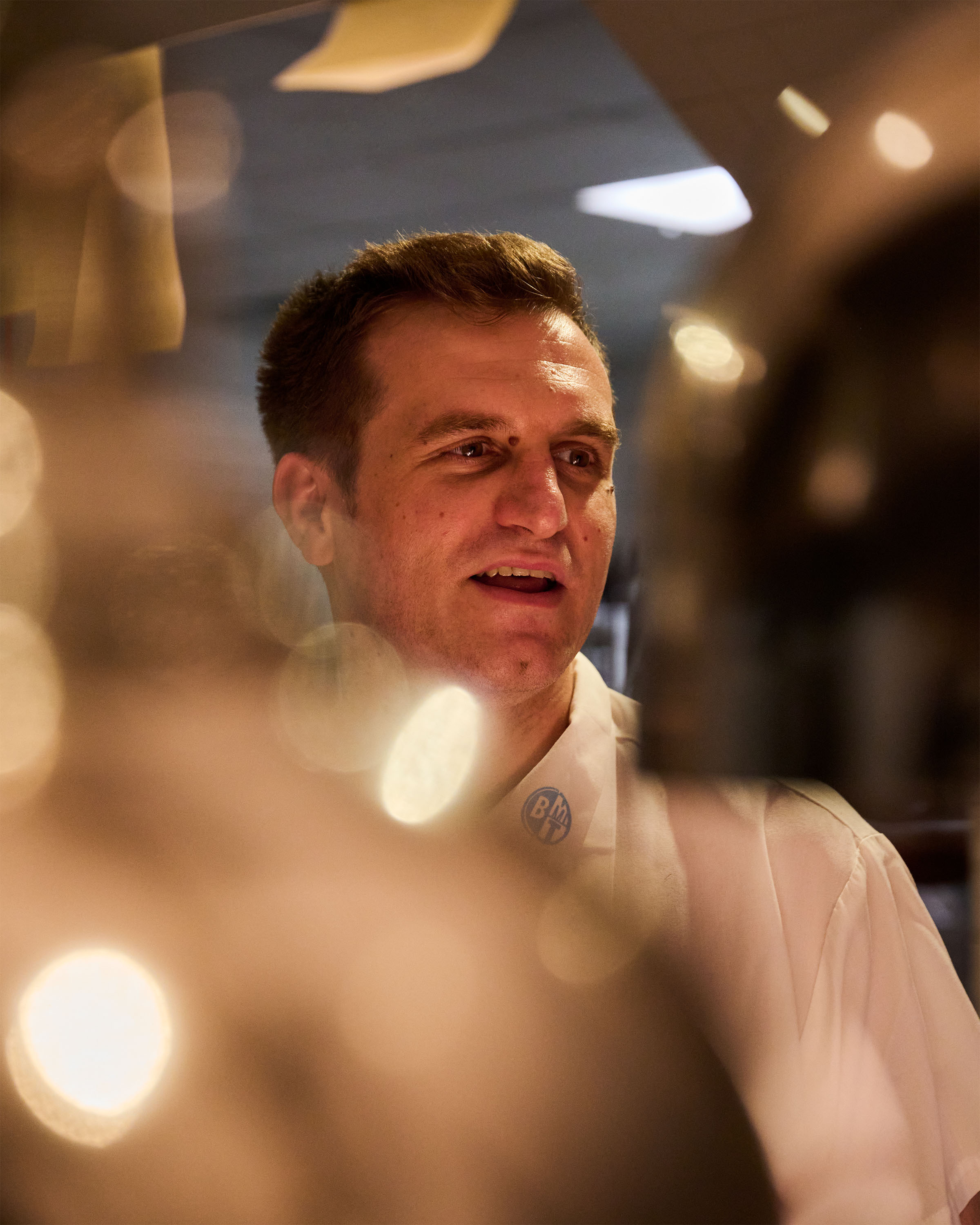
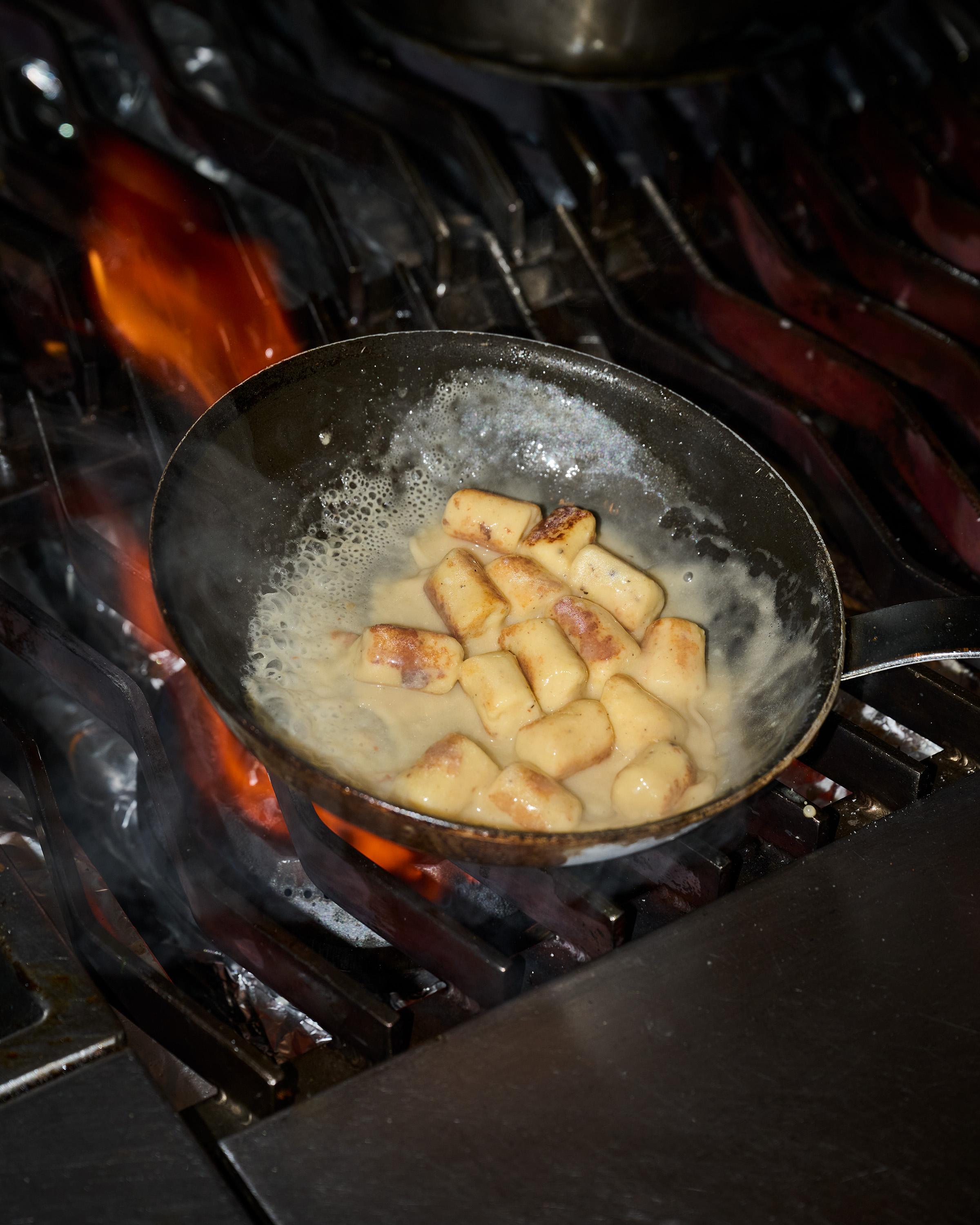
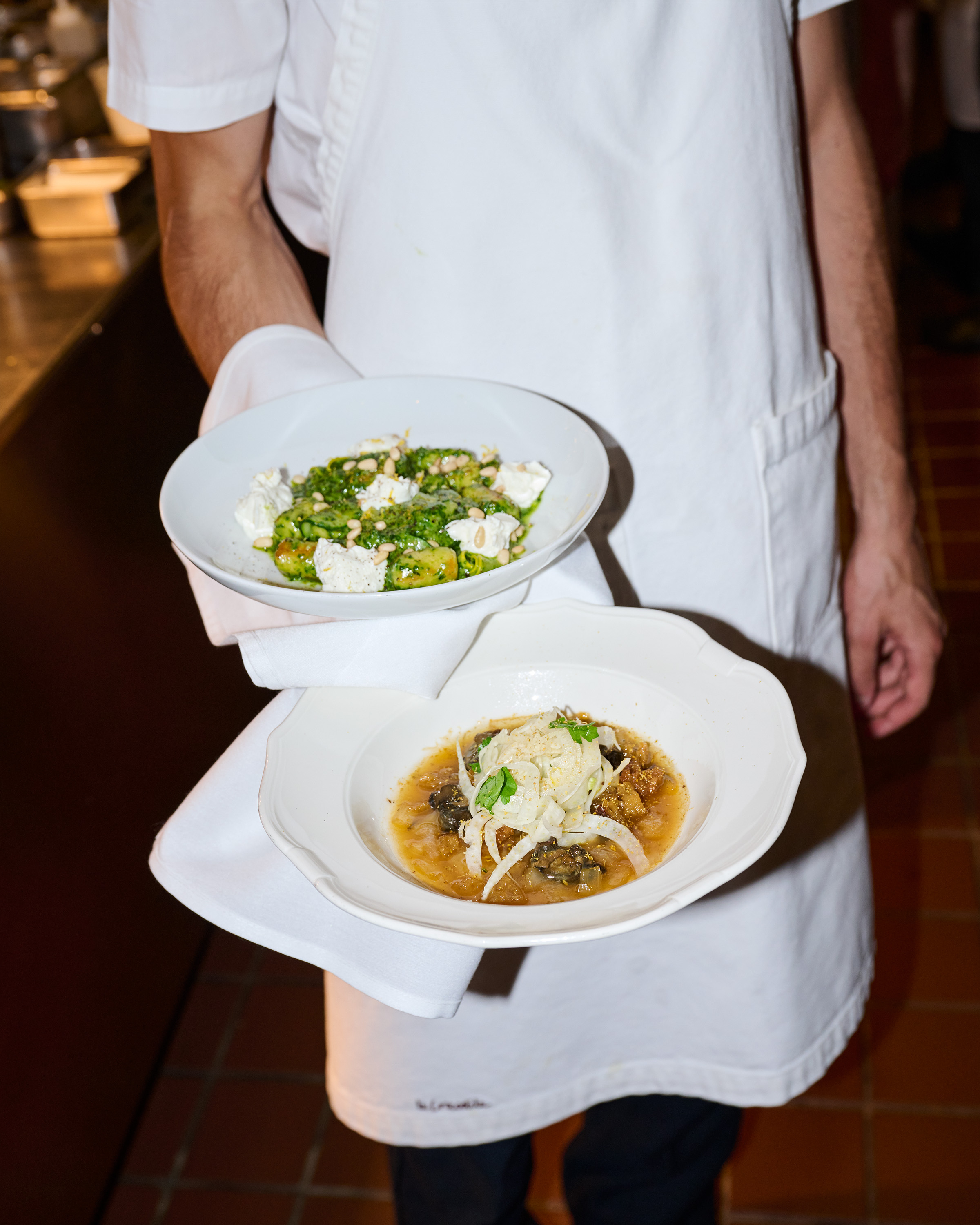
LE CROCODILE
80 Wythe Ave
Brooklyn, NY 11249